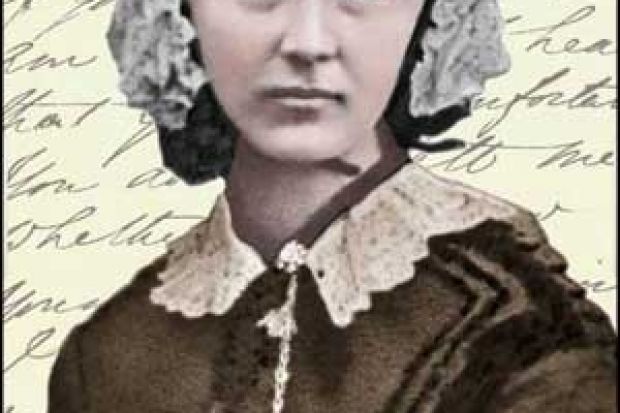Florence Nightingale is one of the handful of women in history famous enough to have become a household name. But unlike many others who come to mind - Cleopatra, Mary Queen of Scots, Elizabeth I, Marie Antoinette - she was not a monarch. She is a thoroughly modern heroine who achieved her iconic status by dint of her own efforts.
Yet history seems to be as uncomfortable with Nightingale as it is with those other legendary women. Those too famous to be forgotten are instead used as object lessons about the dangers of getting "uppity", of marrying too frequently or not at all. According to Lynn McDonald, Nightingale has earned the fame but not the respect that she so richly deserves. She offers Florence Nightingale at First Hand as a passionate corrective.
McDonald is the editor of Nightingale's Collected Works and is a social scientist and politician. She has a great deal going for her. Obviously, no one is more conversant with Nightingale's rich archival legacy. She also brings to the present project a graceful prose that is a pleasure to read. At First Hand is not a biography, but is instead a series of essays on Nightingale's social thought.
After a short biographical introduction, there are essays elaborating Nightingale's ideas on a staggering array of topics, from companion animals to God, from workhouses to India, from war to women. McDonald beautifully incorporates Nightingale's words into coherent syntheses of each topic.
Nevertheless, the book has its weaknesses. As a historian, I found that the insertion of complete primary sources into each chapter struck an odd note. The selection process is never explained and some of the sources, especially the pictorial ones, could have used further explication. Some of Nightingale's fans may also be disappointed to find that Nightingale the empiricist and statistician has a larger presence in this handsome volume than Nightingale the acerbic, witty feminist.
I hope it is not entirely self-serving to suggest that a trained historian would have handled the material in a somewhat less cumbersome and more contextualised way. Although she respects Nightingale's faith, McDonald has trouble understanding her theology because she appears to know only that of the present.
One is taken aback by her contention that Nightingale's view of Creation would put her in the company of today's "right-wing fundamentalist advocates of 'intelligent design'". In fact, it does nothing of the sort, although an 18th-century deist would recognise where Nightingale was coming from.
Similarly problematic is McDonald's ahistorical approach to Nightingale's fabled ill-health, which kept her confined to her bedroom for most of her 50 post-Crimea years. McDonald takes at face value that Nightingale suffered from a disease picked up at the front, and waxes indignant at any suggestion of malingering.
Yet surely more than those two interpretations are possible for a person who survived to the age of 90. For intelligent and ambitious women in Victorian society who lacked all direct access to power, the passive-aggressive manipulation of invalidism had much to offer. It enabled Nightingale to get her work done without raising uncomfortable questions about why she herself could not serve or speak in public.
Finally, casual comparisons of Nightingale with Karl Marx, Max Weber and Emile Durkheim do the "Lady with the Lamp" no favours. Nor do such grand claims show McDonald at her best. But why bother? Nightingale was unique, possessed of enormous reserves of both physical and intellectual courage. Her realism was scathing, leaving her deeply impatient with the false pieties of family and state. And yet far from descending into cynicism, she devoted her life to doing something about it all.
Otherwise, McDonald's approach to Nightingale's defence, focusing as she does on the modern implications of her social policy ideas, may be one that finally brings Nightingale the serious consideration she deserves. I sincerely hope that is the case.
Florence Nightingale at First Hand: Vision, Power, Legacy
By Lynn McDonald
Continuum Press
224pp, £45.00 and £14.99
ISBN 9780826441812 and 9781441132550
Published 4 February 2010
Register to continue
Why register?
- Registration is free and only takes a moment
- Once registered, you can read 3 articles a month
- Sign up for our newsletter
Subscribe
Or subscribe for unlimited access to:
- Unlimited access to news, views, insights & reviews
- Digital editions
- Digital access to THE’s university and college rankings analysis
Already registered or a current subscriber? Login
